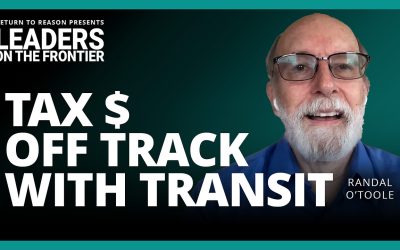The Frontier Centre for Public Policy today released a report which analyzes the state of Saskatchewan’s approach to alcohol sales at the retail and wholesale level. The study, Ending Saskatchewan’s Prohibition-Era Approach to Liquor Stores, analyzes the different approach to retail sales of alcohol in the four Western provinces as well as Quebec and Ontario.
The report, written by University of Calgary doctoral candidate and Frontier Centre research associate Dave Snow, clarifies the myths and misunderstanding which surround the issue of retail sales of alcohol. Specifically, contrary to the claim of some, the empirical research on competitive, private retailing reveals the following:
• Alcohol sold at private outlets is not more expensive;
• Although private competition means more stores and more products, it does not result in higher consumption;
• Public monopolies do not prevent alcohol-related crime or social harm: Snow notes that in fact, it is Saskatchewan which has significant problems on the question of social harm. “Data from 2004 show that , in spite of some of the lowest overall sales and consumption rates in the country, respondents in Saskatchewan reported the highest, second-highest or third-highest rates of alcohol-related harm with respect to friendships, marriage, work, studies, employment, finances, legal problems and physical violence.”
• In the decade following privatization, Alberta’s impaired-driving rate declined by a higher percentage than any other province—73 per cent compared to 47 per cent for Saskatchewan and 50 per cent for Canada as a whole;
• Government monopolies do not produce more revenue than private retailers do.
Recommendations
First, the government needs to recognize that it has separate roles as regulator and wholesaler-retailer. Separate organizations with separate mandates, one to sell alcohol and another to regulate harm, can be created. Quebec, Ontario and British Columbia have already taken this approach to avoid a conflict of interest, although the separation of roles in these provinces could be much more clear-cut.
Second, Saskatchewan should open up its retail and distribution monopolies to competition. This would allow the economy’s best practitioners in supply-chain management and retail to enter the business and serve customer demand. This need not lead to all-out privatization, as public organizations can compete with the private sector in an environment of increased efficiency and competition.
Third, the Saskatchewan government should introduce a taxation regime that treats public and private organizations equally. The nature of the organization (public or private) should not influence taxation.
Fourth, Alcohol should be available in convenience stores and grocery stores. Domestic beer is sold in convenience stores and grocery stores in Quebec, and there are no negative social problems. Selling beer in these stores would increase competition and efficiency, and it has shown no negative effect in terms of social harms.
Fifth, the Saskatchewan government should not view the federal Importation of Intoxicating Liquor Act as a barrier to competition at the importation and wholesaling levels.
“In 2009, following the opening of two privately operated specialty wine stores in Saskatchewan, defenders of the status quo in Saskatchewan claimed public monopolies prevent social harms and increase economic efficiency,” noted Snow. “But a closer examination of the empirical data and statistics shows that most of the claims made in favour of government monopoly, particularly those made by the Saskatchewan Government Employees Union, are exaggerated, misleading, lack sufficient data, or are simply incorrect.”
Download a copy of Ending Saskatchewan’s Prohibition-Era Approach to Liquor Stores here:
/main/publication_detail.php?PubID=2956
For more information and to arrange an interview with the study's author, media (only) should contact:
Dave Snow
403-200-3114
adsnow@ucalgary.ca
David Seymour
306- 352-2915
seymourd@fcpp.org


